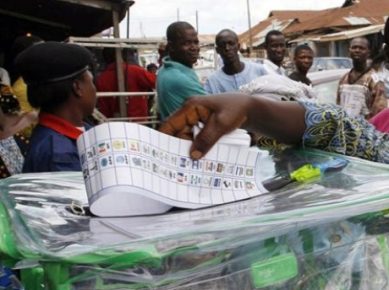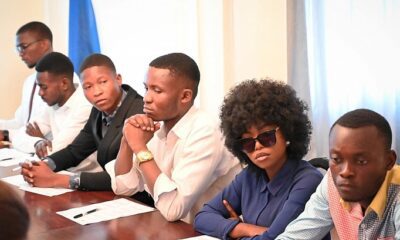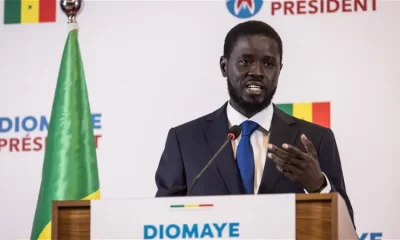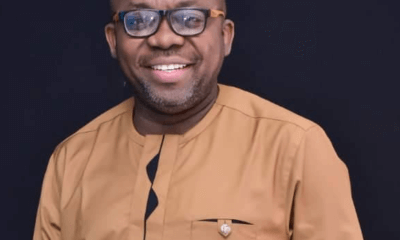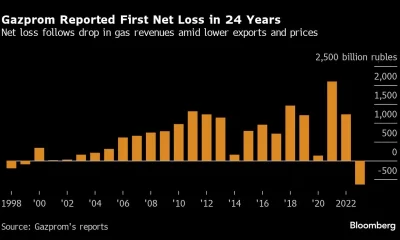Letters
My four fears for 2015 elections -By Uche Igwe
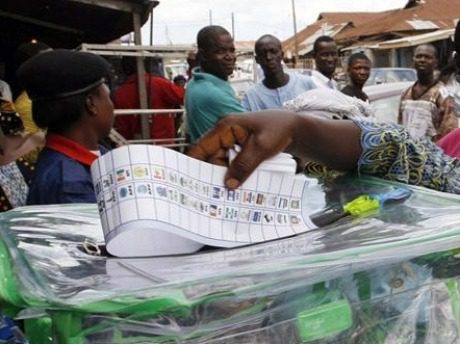
For two weeks now since I returned from a trip to Nigeria, I have been wrapped in thought about the forthcoming general election in my country. The elections are less than almost 60 days away, yet I keep developing this feeling of uncertainty that is simply petrifying, probably for four reasons. The first is that elections may not hold at all because the Independent National Electoral Commission does not seem to be prepared and the security in some parts of the country has deteriorated rapidly. The second is that the two leading political parties, the Peoples Democratic Party and the All Progressives Congress, may likely massively rig the elections. The third is that the elections might throw up many surprises, which will make some of the parties reject the results. The fourth and final fear is that the election and its immediate aftermath may be very violent.
The ongoing distribution of the Permanent Voter Cards across the country has exposed everyone to the unpreparedness and ineptitude of INEC. It was such a poor and shoddy job. In many places that I visited while in the country, people who had temporary voter cards did not find their names in the register. In some places, for an entire ward. How come? If INEC insists that those who have their PVC are the ones who will be eligible to vote, it then means that thousands of Nigerians have already been disenfranchised.
Now, this is just a tiny component out of many other logistical issues. If INEC cannot get this simple but fundamental issue right, what about the others? Furthermore, according to security reports, hoodlums allegedly working for politicians have already started illegal mass production of the PVCs. For instance, the Rivers State Police Command reportedly arrested some of them in a popular hotel in Elele near Port Harcourt.
On a related note, if the security situation in many parts of the country does not improve, it might be difficult to hold elections. Today, a greater part of the North-East remains in the hands of Boko Haram insurgents. INEC has announced that it will depend on the guidance of the security agencies to know whether it will be able to hold elections in the troubled areas. Without being a security expert, I will imagine that elections will not hold in many parts of the North-East. Maybe not even in Kano State. Or, tell me which INEC official will accept posting to Chibok or Gwoza, even with government assurances, for electoral duties? If this is the case, it will mean that only some parts of the country will elect our next President. How will such a President enjoy nationwide acceptability and legitimacy? Will the army subdue Boko Haram well enough to allow the elections in the whole country?
My second point is that the elections may be massively rigged. Flowing from the first set of points that I have raised, poor logistics for collection of PVC and distribution, illegal production of PVCs, heightened insecurity in some parts of the country, and voter apathy, all these factors prepare a fertile ground for rigging.
Many observers insist that such electoral malpractice will only be possible with the cooperation of security agencies like the police in favour of the ruling party. However, those who understand the election process, conjecture that such malpractices are not exclusive to the PDP. Even the opposition APC is not immune to it, especially in states that it considers its strongholds. You only need to look at the list of party leaders that it parades to agree with me. The danger here is that when rigging and malpractices become widespread and systematic, it may force observers to conclude that the elections were not free and fair, something that will negatively affect the credibility of the results.
My third point is that the elections may throw up many surprises. The Nigerian voting public has become increasingly distrustful of our politicians. The corrupt behaviour of politicians evident in numerous financial scandals has created a contemptuous image for the entire political system and the political class. The politics of nepotism, clientelism and particularism means that the politicians reserve the right of first refusal for public opportunities to themselves, their loyalists and cronies.
The media have contributed to stoke the fire and citizens are now aware. From the primaries alone, a few of the surprises have started. Many more will follow. If the elections hold transparently, citizens will be tempted to by default dethrone many godfathers. When these surprises start crystalising, the beneficiaries of the status quo will likely engage in activities in order to resist change. One easy way to do so is truncate the transition through a frivolous litigation. We must not forget how the infamous Association for Better Nigeria was used by vested interested to scuttle June 12, 1993 elections, acclaimed to be the freest and fairest ever held in Nigeria.
My fourth and final reason to fear is that the forthcoming elections will be violent and indeed bloody. Compounding to the above fears, our political elite are now clearly divided along religious lines. Stockpiles of arms have been reported in many states. The rehearsals in the background and verbal combats seem as if people are preparing for war, not elections. Rivers State easily comes to mind where there will be a “battle royal” to demonstrate the omnipotence of presidential power over a “recalcitrant” governor. A former Minister of State for Education, Nyesom Wike, of the PDP will be facing the APC candidate and member of the House of Representatives, Dakuku Peterside. Furthermore, the return of former militants all allegedly sympathetic to the PDP is an indicator of the type of elections expected in that state. Apart from Rivers, there are many other states where brutal political enemies and their supporters will be spoiling for a conflict. In Kaduna State, known as a flashpoint for electoral violence, a former FCT Minister, Nasir el-Rufai, will be squaring up with the incumbent Governor Murtala Yero. In Benue State, Senator Barnabas Gemade will be facing Governor Gabriel Suswan at the polls, while in Bayelsa, Senator Emmanuel Paulker’s intention to return to the Senate for the third time is being resisted by his people. Abia State, which has unwittingly become the fiefdom of Governor T.A. Orji, will be another hot spot.
At the risk of sounding alarmist, with all these fears, the only thing that is certain about 2015 is uncertainty!
We have two options. It is either we continue to pretend that all is well, or we start raising these concerns, and try to work out what remedial action we need to take within the next few weeks. For me, all Nigerians need to face up to some tough choices about our future as a society.
My position is that we need this election, and that we need a peaceful one too. The buck stops on the desk of our politicians. They have to make this election happen and play by the rules, regardless of who loses or wins. This country has to, not only move forward, but make sure it has a future at all.

